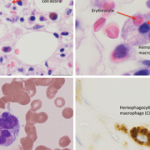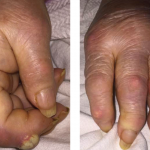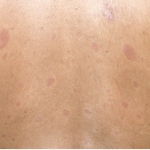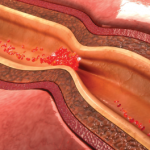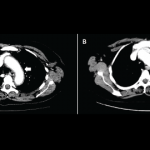The patient was a 48-year-old woman who saw her primary care physician for a flu-like illness three months prior to admission. Her symptoms initially improved, but recurred one month later; she was treated symptomatically, and again symptoms resolved. Two months later, she presented to an outside facility’s emergency department with fever to 103ºF, with associated…
